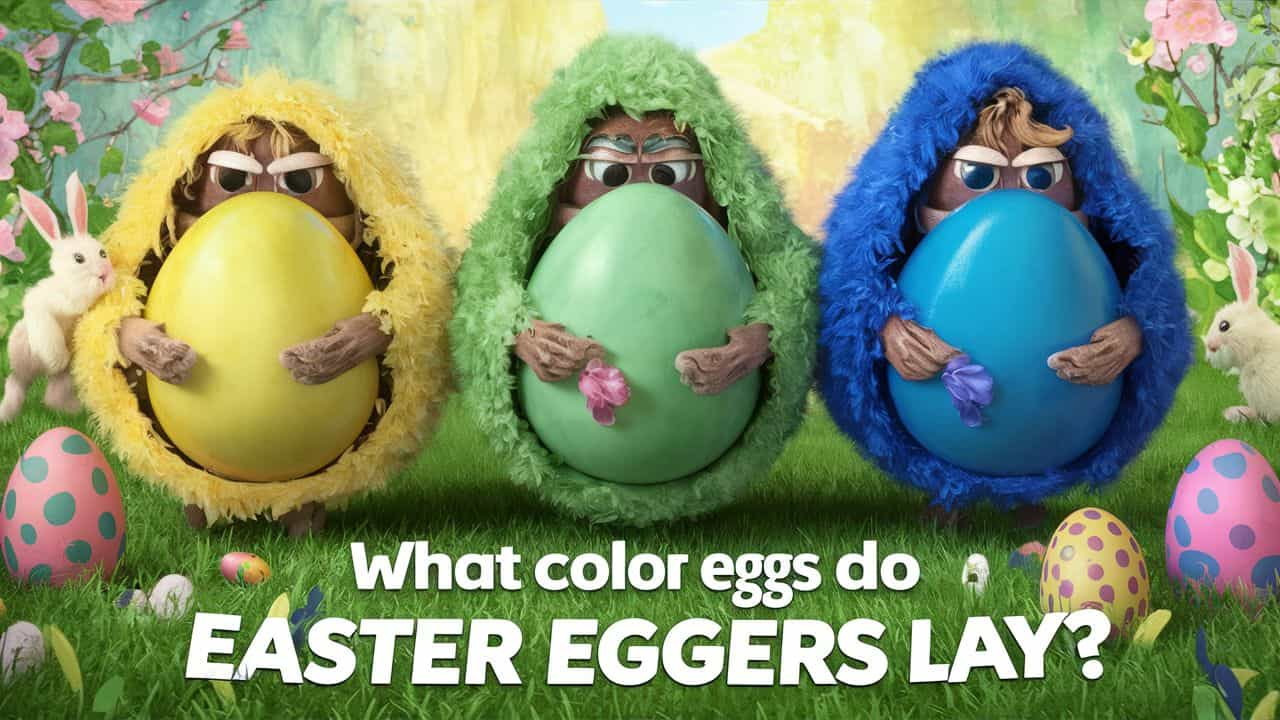As the joyous Easter season approaches, enthusiasts of poultry keeping often find themselves intrigued by a particular breed known for its captivating allure and colorful eggs – the Easter Egger. These charming birds, hailed for their friendly demeanor and unique egg-laying capabilities, have sparked curiosity among both novice and seasoned chicken keepers alike. The question that frequently arises, however, is a simple yet perplexing one: What color eggs do Easter Eggers lay?
In this enlightening blog post, we embark on a journey to unravel the mystery behind the egg palette of Easter Eggers. Delving into the fascinating world of chicken genetics and breed characteristics, we explore the factors that influence the hues of these delightful eggs. From sky blues to olive greens, the spectrum of colors that Easter Eggers produce is as diverse as it is enchanting.
Whether you’re considering adding Easter Eggers to your flock or simply seeking to satisfy your curiosity about these captivating birds, join us as we delve into the realm of poultry science and unveil the secrets behind the colorful eggs that make Easter Eggers truly egg-ceptional.
What Are Easter Eggers?
Easter Eggers are a type of chicken breed known for laying eggs in a variety of colors other than the typical brown or white eggs laid by most chicken breeds. The name “Easter Egger” comes from the resemblance of their colorful eggs to the decorated eggs associated with Easter celebrations.
Some key points about Easter Eggers:
Egg Colors: Easter Eggers can lay eggs in shades of blue, green, pink, olive, and even some with speckles or tints. The specific color depends on the genetic makeup of the individual chicken.
Mixed Breed: Easter Eggers are not a standardized breed but rather a mixed breed or hybrid. They typically result from crossing breeds like Ameraucanas, Araucanas, Marans, and other breeds that carry the blue egg gene.
Appearance: Easter Eggers can have a wide variety of appearances, including pea combs, tufted heads, reddish-brown feathers, or black and white patterns, depending on their genetic background.
Egg Production: In addition to their colorful eggs, Easter Eggers are generally good egg layers, producing a decent number of eggs over the course of a year.
Personality: Easter Eggers are often described as friendly, curious, and good with children, making them popular backyard chickens for families.
While their eggs may not have any significant nutritional differences from regular chicken eggs, many people enjoy keeping Easter Eggers for the novelty and beauty of their multicolored egg assortment.
Easter Egger Colors
The secret to Easter Egger’s vibrant eggs lies in their mixed heritage. Bred from chickens carrying the blue egg gene, often from breeds like Araucanas, and other brown egg layers, they inherit a genetic lottery of pigment-producing capabilities. This unique blend translates into a spectrum of egg colors, making each hen a potential artist.
A Palette of Possibilities:
Blue: The signature Easter Egger hue, courtesy of the blue egg gene. Shades can range from light turquoise to a deeper, almost denim blue.
Green: A delightful blend of blue pigment with underlying brown tones, creating a beautiful emerald or olive green.
Pink: A rarer sight, pink eggs are a result of a low dose of brown pigment combining with the blue base, leading to a delicate shell color.
Earthy Tones: Tan, cream, and light brown shades emerge from the brown egg genes passed down from other breeds in the mix.
Classic Brown: Not all Easter Eggers lay colored eggs. Some inherit the brown egg gene more dominantly, resulting in rich brown shells.
The Unpredictable Charm:
One of the most endearing aspects of Easter Eggers is the element of surprise. Unlike pure breeds where egg color is a sure thing, with Easter Eggers, every nest visit becomes a treasure hunt. You might find a vibrant blue egg nestled beside a soft green one, all laid by the same hen.
Factors Influencing Egg Color:
Breed Mix: The specific breeds used in the initial crossbreeding significantly influence the final egg color.
Individual Genetics: Even within the same flock, each hen expresses the genetic mix slightly differently, leading to variations in the egg color spectrum.
A Note on Breed Recognition:
It’s crucial to remember that Easter Eggers are not recognized as a standardized breed by official poultry associations. Their diverse appearances and mixed genetics are what define their unique charm.
Raising a Feathered Rainbow:
If you’re looking to add a touch of whimsy to your backyard coop, Easter Eggers are a delightful choice. Their prolific laying nature, combined with the daily surprise of the eggs they produce, makes them a captivating addition to any flock.

